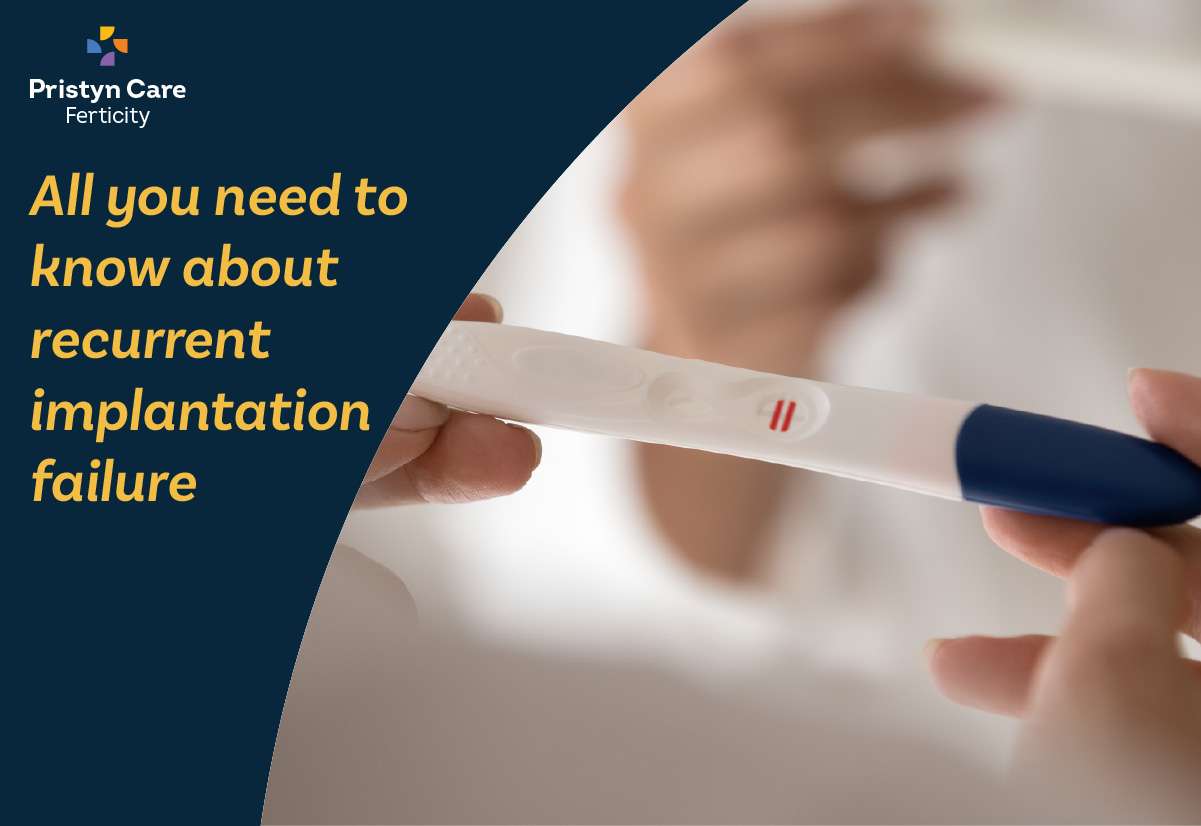Imagine trying to start a family, but every attempt ends in disappointment as recurrent implantation failure. It’s tough, we know. But don’t lose hope, choosing the right fertility doctor can bring the miracles you’re waiting for.
For instance, you may have had many attempts at embryo implantation that just didn’t stick. Maybe you’ve experienced implantation bleeding or struggled through the day 3 embryo transfer or post-embryo transfer phases. The stress is real, and it can affect your health, your mind, and your outlook on the journey ahead. It’s difficult to cope with recurrent implantation failure (RIF), especially if you’ve been relying on assisted reproductive technology or IVF.
Good news: understanding the causes of RIF and exploring treatment options can give you a fresh start. From pre-implantation genetic diagnosis to getting the timing right with embryo implantation, every step matters. AND THERE’S HOPE!
Let’s find out more about it.
Alarming signs and symptoms of repeated implantation failure
Lack of particular symptoms: Unlike certain medical disorders, RIF may not show physical signs that indicate this condition. In both successful and unsuccessful implantations, early pregnancy symptoms such as fatigue, breast soreness, or missed periods appear.
Negative pregnancy test: Following a missed period, a negative home pregnancy test may show up as a warning sign, but remember that an early test might also yield negative results.
Other Ways of Implantation Confirmation
Blood test: A simple blood test checks for human chorionic gonadotropin (hCG). If the pregnancy is successful, hCG levels increase noticeably.
Ultrasound: To confirm implantation, a transvaginal ultrasound shows a gestational sac inside the uterus.
Consult your fertility doctor if you have concerns regarding implantation following an IVF treatment. To check the progress of implantation and discuss possible next measures, they can conduct an ultrasound or blood test.
Major causes of recurrent implantation failure
Sometimes, even when everything seems right, implantation doesn’t happen. Here’s a quick breakdown of what could be going on:
Embryo issues:
Chromosomal abnormalities might be stopping the embryo from developing.
Poor-quality embryos often struggle to implant.
Uterine Factors:
Structural problems in the uterus can block implantation.
The uterine lining might not be ready or receptive enough.
Infections like chronic endometritis could also be interfering.
Hormonal Imbalances:
Hormone disruptions, thyroid issues, or even diabetes can have an impact.
Lifestyle Habits:
Smoking, drinking, or an unhealthy diet might reduce implantation chances.
Being stressed or excessive physical activity could be affecting your body.
If these sound familiar, it’s worth discussing with a specialist to find answers that work for you.
How do doctors diagnose recurrent implantation failure?
Going through multiple implantation failures can be a deeply personal issue for a female trying to conceive for a long time. What may be the best treatment approach for one may fail for another. Thus personalized treatment plans are best to address repeated failure after embryo implantation.
Following are some common curative measures that fertility specialists recommend:
Improving embryo quality: The success of embryo implantation often depends on the health of the embryo itself. Advanced lab techniques, including pre-implantation genetic testing for aneuploidies (PGT-A), can screen embryos for genetic issues, increasing the likelihood of successful implantation.
Endometrial receptivity testing: Timing is everything when it comes to implantation. Tests like Endometrial Receptivity Analysis (ERA) pinpoint the best time in a woman’s menstrual cycle and hormonal pattern for an embryo transfer, improving the chances of success.
Preparing the uterus: Hormonal therapies can prepare the uterine lining to be more receptive to the embryo. This step ensures that the body is in the ideal state for embryo implantation, especially during a day 3 embryo transfer or a blastocyst transfer.
Changing lifestyle for better: Small daily habits can have a big impact on fertility. A healthy diet, regular physical activity, stress reduction, and proper self-care can improve overall reproductive health and reduce challenges like implantation bleeding.
Considering advanced treatment options: For those with persistent difficulties, options like surrogacy or using a nestational carrier offer a safer path to parenthood when traditional routes fail.
Regarding fertility and family planning, every step counts, whether it’s timing the post-embryo transfer phase, improving embryo quality, or preparing the body for optimal implantation. With the right combination of treatments and support, successful implantation becomes much easier.
Recurrent implantation failure (RIF) occurs when multiple attempts at embryo implantation fail. It can result from medical issues like hormonal imbalances, uterine problems, or genetic factors, as well as stress or lifestyle habits. Identifying the cause and exploring the right treatments is crucial.
Treatments like pre-implantation genetic diagnosis, hormone therapy, and advanced embryo implantation techniques can boost success rates. At Ferticity IVF, personalized care and targeted treatments help you move forward toward a healthy pregnancy. Log onto https://ferticity.com/best-ivf-doctors-in-delhi/ to book appointments with our expert fertility doctors.

